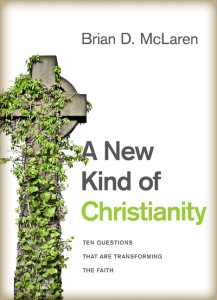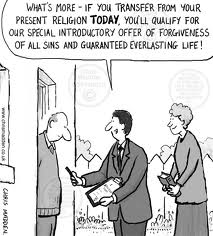A story which leapt out at me this morning in the Times concerns a GP who is facing a hearing at the General Medical Council in Manchester. Dr Thomas O’Brien allegedly told a patient that he could heal her pain without medication and that she was to submit to an exorcism. It was only after Dr O’Brien was reported to the GMC by the patient’s psychiatrist that the case came to light. The present hearing that is ongoing brings to the fore a number of issues relevant to this blog.
During the course of the hearing which began yesterday (Tuesday) the expression ‘religious grooming’ was used. This expression, as far as I know, has no place in law but the fact of its use in a quasi-legal setting may be of importance for the future. The pre-exorcism religious grooming included taking the patient to a local Pentecostal church, meeting the minister over lunch and giving her a copy of a book Doctor O’Brien and his wife had written, an Occult Checklist. This type of checklist, in favour among a certain genre of Christian, has been around since the 80s and it lists all the forms of behaviour that have the potential for allowing an individual to be demonically possessed. The lists are comprehensive and indeed anyone reading such a checklist will find at least one experience or situation that has made them susceptible to ‘Satanic influence’. I cannot imagine that many people have never once read their horoscope while sitting in a dentist’s waiting room and that activity open up the individual to demonic infestation. I encountered the influence of these types of checklists in the 90s when researching my book, Ungodly Fear. One vulnerable woman was told to destroy all her possessions after a group of Christians had persuaded her that she was possessed through having worked as a nurse at a Masonic Hospital in London. Fortunately she did not oblige. The checklist will mention the demonic power of elephants (pictures or models) because elephants are sacred to Hinduism. All adopted children are likely to be possessed because the act of their conception was performed out of wedlock. Needless to say, gay sex and any sexual activity outside marriage is taking the perpetrator straight to Hell. I used to have such a checklist but its contents were so disturbing and unsettling that the book was destroyed. The purpose of the book seems to have been to terrify the reader into cutting themselves off from any influences that might challenge the power of the religious leader under whose authority they have placed themselves.
The occult checklist culture in the UK reached a peak in the early 90s with the scares connected with satanic ritual abuse. I have discussed this issue in a previous blog post. I can say in summary that the demonic paranoia that was rampant among Pentecostal and other evangelical groups has mercifully subsided. One hoped that enough people had seen the horrendous harm caused to vulnerable individuals by such teaching. Clearly, as the present hearing shows, this is not universally the case. For one highly educated person, such as Dr O’Brien to hold on to such medieval and harmful beliefs, there needs to be a supporting culture of books, theological teaching and convinced individuals. People do not wake up one morning with all these beliefs in their head fully formed. They have to learn them in a church and the church has a minister who has learnt these ideas from an institution of some kind. As I have said on a previous blog post, there is a time for appropriate ministry to deal with paranormal and occult issues. But the exorcism as practised by Dr and Mrs O’Brien seems to have been laced with bad pastoral practice, weak theology and abusive assumptions. This kind of practice needs to be named and shamed.
Out of this sad episode, which is as yet unresolved, may come two positive results. One is that the expression ‘religious grooming’ may slip from its use in the General Medical Council to become a category understood by lawyers and courts generally. It would be a tremendous boost to the cause of helping vulnerable and damaged people who have been further abused by religious leaders if their plight could be understood by the courts. The second thing that gives me hope is the need for churches generally to have to consider where they stand in responding to this particular case. Some, no doubt, will claim that Dr O’Brien is a poor persecuted Christian who is suffering for his beliefs. Others, and I hope the majority, will declare that Christians of any kind have no business in making the suffering of an individual worse by the application of a type of Christianity which is clearly abusive. Any discussion in Christian circles, and I hope there is a lot, will help Christian people to see that certain beliefs can and do harm people. The unravelling of all the moral issues in this case may well help the cause of a greater self-awareness among Christians who sincerely want to apply biblical truths to the issues of people’s lives but need to be taught to do it with tact, intelligence and sensitivity. The battle against abuse by Christians of Christians has to go on. This is the task of this blog and your interest and support will help and encourage my very small role in this struggle.







